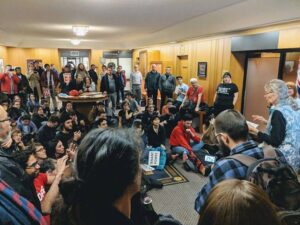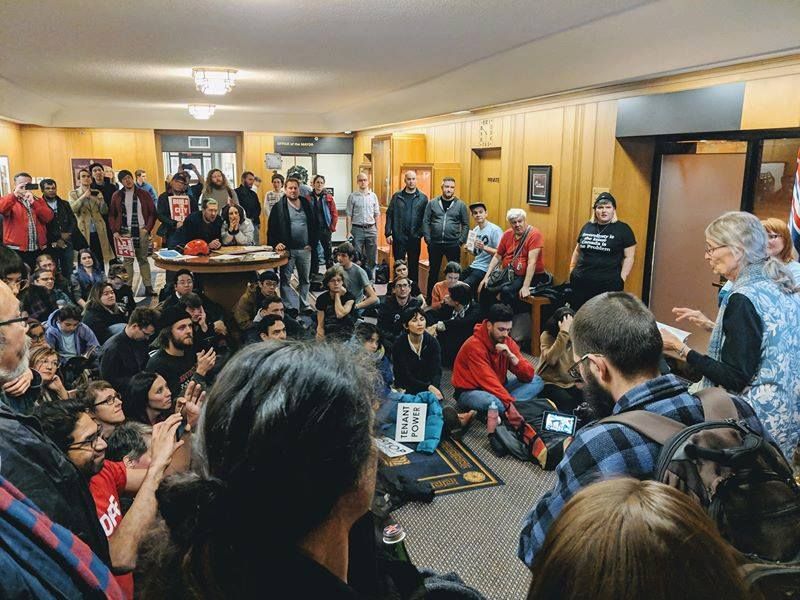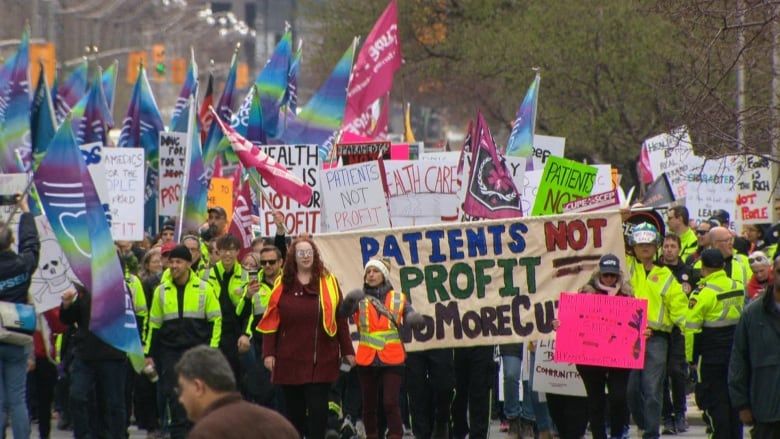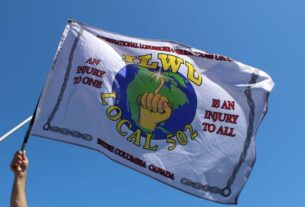
Vancouver voters made history on Saturday, October 20, 2018 by electing veteran organizer and community campaigner Jean Swanson to city council in the city’s most important electoral victory in decades. She with one school board and two parks board candidates were all elected under the rejuvenated Coalition of Progressive Electors (COPE) banner.
The campaign’s centrepiece was not Jean or the other COPE candidates themselves, but the platform, which featured policies that none of the softer-left candidates could touch. Called The City We Need it included: a four-year rent freeze, a progressive property tax on homes valued at over $5 million (the “mansion tax”), free transit passes for children and the elderly, modular homes to ensure that every last homeless person in Vancouver would have a roof over their head, and much more. These were demands that reflected the reality of life for most Vancouverites struggling with soaring rents, homelessness, and being priced out of their city. All strong transitional demands that Socialist Alternative could and did enthusiastically support (see page 2).
Swanson campaign’s enthusiastic support was not based on nice words nor sunshiney appeals claiming that this campaign stood for everything and, thus in reality, nothing. We named our enemies — the ruling Vision Vancouver party, property developers, and big landlords. The campaign, involving hundreds of activists, that used time-honoured methods of public work, tabling on main streets, leafletting, and door-knocking in order to spread our message to those people who would be most energized and inspired by our platform.
Swanson’s success was built on the 2017 by-election, when she came from nowhere to second. This built a strong coalition of support, hammered out key policy ideas and re-drew Vancouver’s political map.
Socialist Alternative’s Seattle city councillor, Kshama Sawant, helped inspire Jean and the campaign. Sawant gave a fiery speech at the election’s biggest rally, one week before the election. She gave fair warning that once left-wing parties are inside the council chambers they are expected to politely quieten down. Elected representatives are supposed to play nice and dilute their demands once on the inside, as so many left parties and candidates have before. And forget about the election promises and the campaigners outside the council.
Swanson and this campaign will not go away. One of the surest mistakes a left organization can make is to leave its elected representatives adrift in the shark-infested waters of a parliament or city council. Even the noblest, savviest, most dedicated fighters for the working class — and Swanson is certainly in that high calibre — will be little more than a harmless and easily ignored protest vote if they’re abandoned by the movement which laboured so long and hard to get them there.
With only one solidly pro-worker, pro-renter councillor up against nine other councillors of varying political persuasions a campaign outside of city hall is vital to make any gains, as demonstrated by Sawant’s successes in Seattle. Without that movement building, one councillor is inevitably ineffective, which can would serve as a massively demoralizing force for those who rightly look to elections as a part (though not the whole) of fighting for a juster world.
Elections can be an indispensable tool in spreading ideas if skilfully utilized to show people that they can fight back in an organized, effective way against the forces in society that are trying to hold down their wages, raise their rents, attack their communities, and further enrich the wealthiest ruling class in history. Campaigns can build support for radical and socialist policies and get people active. However, elections should not be contested just for the sake of running candidates; elections are hard work and it’s vital to go into each with soberly assessed and achievable plans and goals.
The approach in Vancouver has already borne results, and in short order, too. The campaign won its first concrete victory before a single vote had been cast; with three weeks to go until election day, the BC government backtracked on the 4.5% allowable rent increase for 2019 that it had announced just two weeks previously. Thanks to the public outcry that the campaign helped to amplify, the increase was quickly cut to 2.5%, saving the average Vancouver renter $500 a year. While not an unequivocal, total victory, it is still an immensely powerful confirmation that it was the COPE campaign that was exerting influence and setting the tone.
The battle has not let-up at all since the election. On December 4, less than a month after Swanson’s inauguration as a city councillor, with over 100 boisterous activists in council chambers and two overflow rooms, Vancouver City Council unanimously passed her Motion 10 against renovictions, possibly the biggest driver of the city’s sky-high rents. This victory, the biggest for Vancouver’s renters (53% of the population) in at least a decade, came not by glad-handing in back rooms, but by well-organized, public militancy.
The campaign won’t win every battle and the ruling class is already finding its feet to fight back, moving to weaken Motion 10 and organizing against higher taxes on luxury homes. This reinforces the fact that campaign needs to go back on to the streets, doorsteps and workplaces with activity and rallies to build strength.
Across Canada the need exists for strong radical movements for housing and economic justice. Activists in other cities across Canada can learn from Vancouver’s example and start to win The Country We Need.




